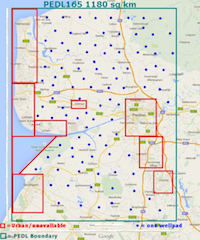What is “well integrity” and why is it so important?
Well integrity is concerned with the safe and reliable containment of all well fluids throughout the life of a well, including after decommissioning. A typical well is built from several thousand components and must perform for many years exposed to tortuous conditions. Well systems can and do fail, at which point the integrity of a well is compromised.
Source – Archer “The Well Company” Website – http://95.138.182.140/challenges-well-integrity/353/well-integrity.htm
Why should this concern us here in the UK?
The most likely accidental problem to result from fracking would result from migration of toxic material as a result of a failure in well integrity.
This is because by far the most likely route for any migration of these toxic materials into the aquifer layer or up into the atmosphere would be via the gaps that would be created by a result of a failure in well integrity.
How likely is it that a well would fail?
Unfortunately the answer is “quite likely indeed”
As the Archer site also tells us:
Managing well integrity is a global challenge. Statistics collected during the past few years from 3 independent sources* revealed well integrity failures in 45%, 34% and 18% of wells in the Gulf of Mexico, UK North Sea and the Norwegian North Sea respectively.
While the industry complain that these figures are for offshore wells, the best case scenario, extrapolating from this independently sourced historic data, is that around 1 in 5 of the 4-6,000 wells that are planned for the Bowland Shale under the Fylde would have their integrity compromised. That’s about 1000 leaky wells that we can expect. Even if the failure rate on shore were only 10% of the offshore rate that would still be totally unaccepatable.
While it may be possible to mitigate the impact of minor integrity failures if these wells are monitored properly under an effective regulatory regime, this is not going to happen the way things are currently.
If the fracking companies are left to regulate themselves the chances of a well’s integrity being compromised, and it only being discovered some time after the event as a result of problems being experienced, are simply to high to be acceptable. Presently extraction companies are not required to provide bonds for abandonment, meaning that their liability in the event of a post-production leak relies on their still being around and solvent, neither of which are in any way certain. In the event that they were not then the burden for clean-up costs would fall on us, the tax-payers.
As UK taxpayers we deserve better from our government, local MPs and Councillors than bland reassurances that things will only go ahead with stringent regulation. We need to see some action here!
At the moment there is no sign that regulations are being tightened and the existing situation is simply not going to protect us from the statistically inevitable number of well integrity failures that will occur if fracking is allowed to go ahead.
Even the wells they are drilling for exploratory purposes, like the one at Preston New Road, may have integrity problems in the future. It seems that the regulatory authorities have left a gaping hole by refusing to insist on properly monitored cement bond logs.
With there being no guarantees that the companies that follow Cuadrilla into this new Klondike will act in a professional or transparent way, so let’s hope we don’t all learn from that mistake the hard way.
Cuadrilla’s history of breaches of their various permits in developing the PNR site, where they are under intense scrutiny, has set an ominous precedent for our collective future.
As the Task and Finish Report for Fylde Borough Council puts it:
The immediate/urgent need to introduce a comprehensive regulatory framework for the onshore shale gas sector and that such framework be robust and prescriptive in character. Throughout the process, it became increasingly evident that there needs to be specific hydraulic fracturing regulations to be in place for on-shore activities. In the absence of any legislation/ regulations, there would be concerns that other operational companies may not keep to the same standards/ best practice as set by Cuadrilla.
Cuadrilla have experienced serious issues with unexpected earth tremors, and most recently having to abandon a well after a well integrity test left them unable to carry on drilling.
Let’s not gamble our futures away by allowing this to go ahead without effective regulation and base line assessments to protect us.




























